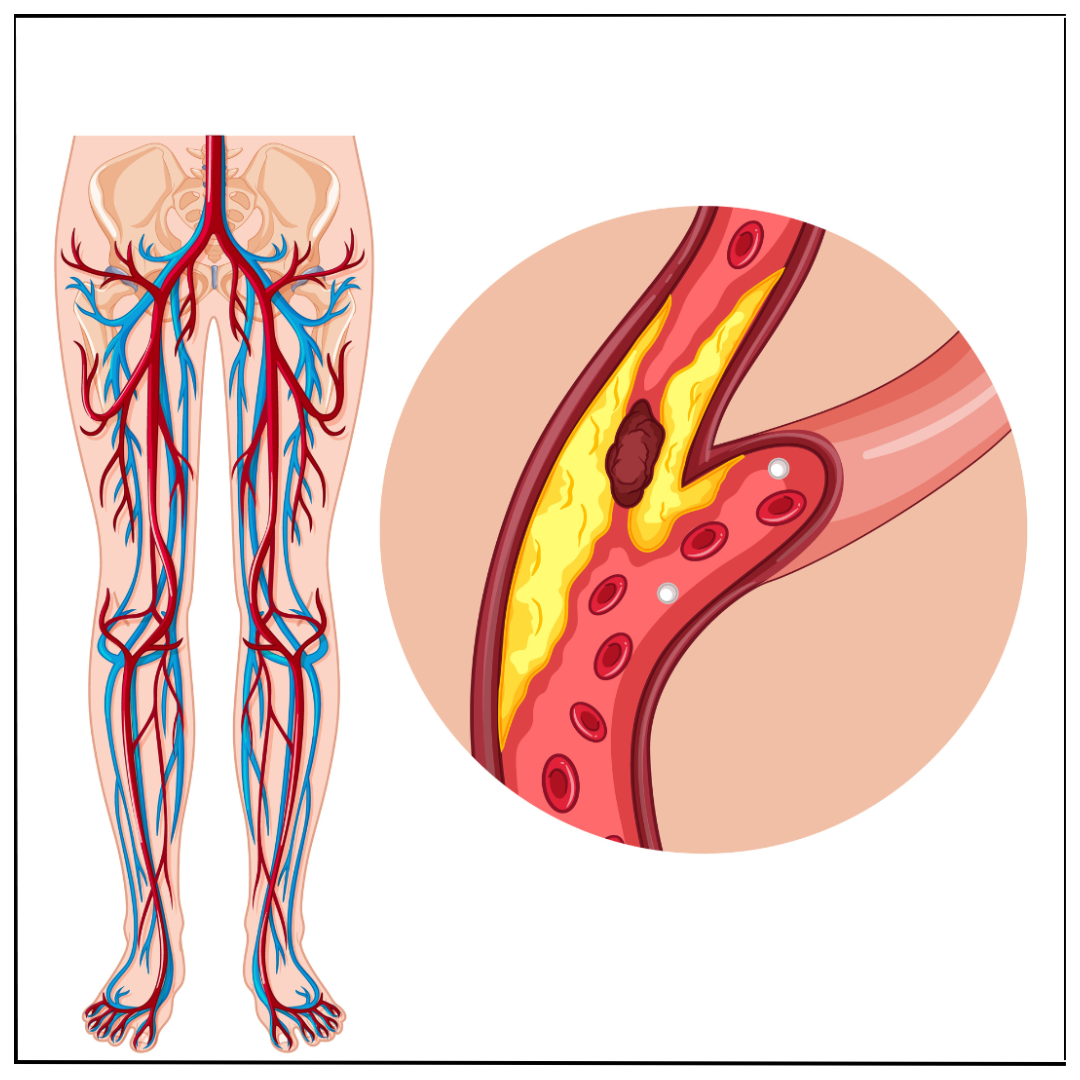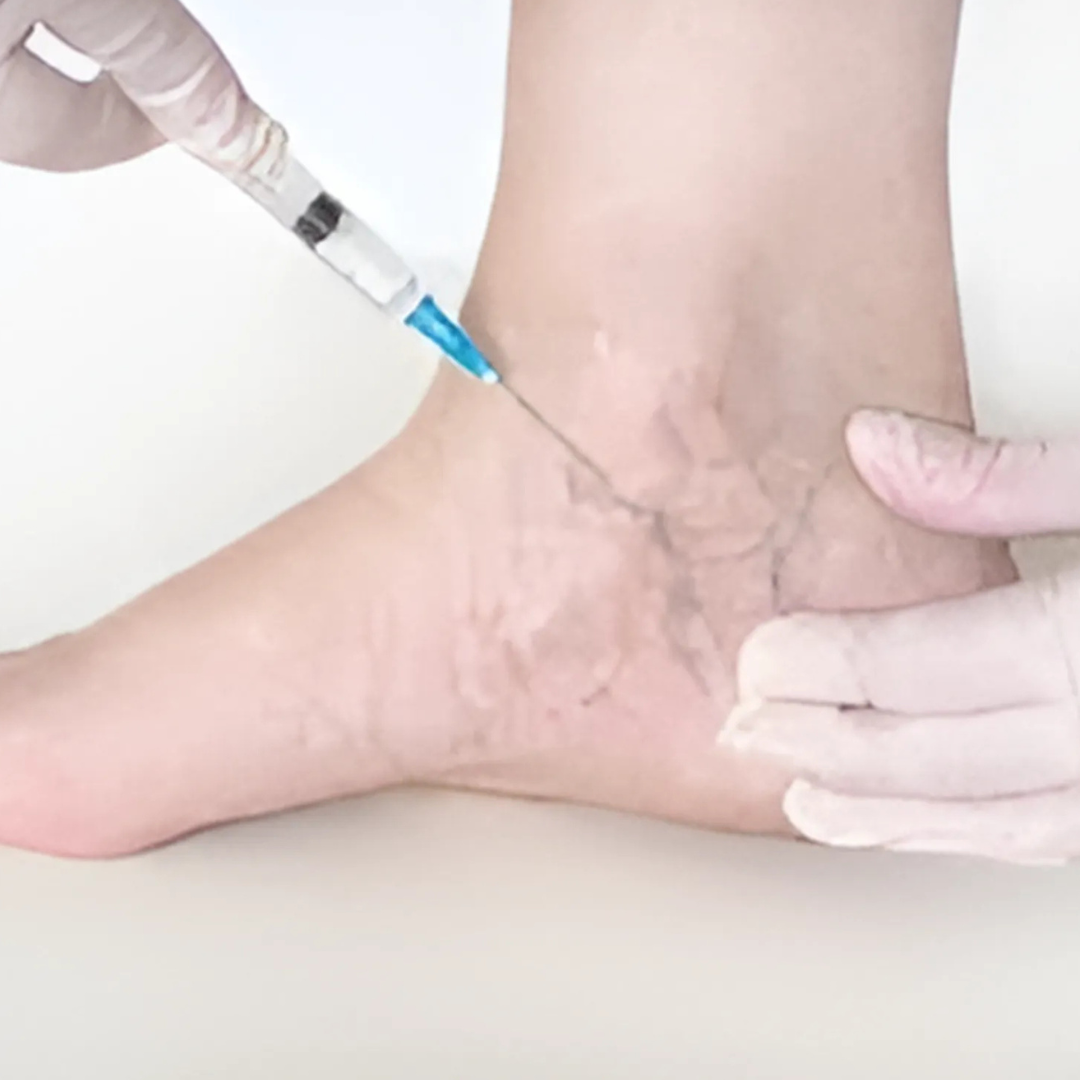Deep vein thrombosis (DVT) is a serious vascular condition that occurs when a blood clot forms in a deep vein, most commonly in the legs. Understanding the risk factors associated with DVT is crucial for prevention and early intervention. In this article, we will explore the various factors that contribute to the development of DVT and how individuals in Hyderabad can make informed choices to reduce their risk.
1. Genetic Predisposition
A significant risk factor for DVT is a family history of venous thromboembolism. If close relatives have experienced blood clotting issues, individuals may have a genetic predisposition, making it essential to be vigilant about DVT symptoms.
2. Age and Gender
As age advances, the risk of developing DVT increases. Additionally, women, especially during pregnancy and the postpartum period, are more susceptible due to hormonal changes and increased pressure on veins.
3. Prolonged Immobility
Sedentary lifestyles, prolonged bed rest, or extended periods of sitting, as often seen in office settings, can lead to reduced blood circulation, increasing the risk of blood clot formation.
4. Medical Conditions
Certain medical conditions such as cancer, inflammatory disorders, and cardiovascular diseases can elevate the risk of DVT. Understanding these underlying conditions is crucial for comprehensive DVT prevention and management.
5. Surgical Procedures
Individuals undergoing major surgeries, particularly joint replacement surgeries, are at an increased risk of developing blood clots. Surgeons often prescribe preventive measures to mitigate this risk.
6. Obesity
Excess weight puts additional pressure on veins, impeding blood flow and increasing the risk of clot formation. Weight management and a healthy lifestyle play a key role in DVT prevention.
7. Smoking and Substance Abuse
Tobacco smoke and certain substances in illicit drugs can damage blood vessels, making individuals more susceptible to blood clot formation. Quitting smoking and avoiding substance abuse contribute to overall vascular health.
8. Dehydration
Inadequate fluid intake can lead to thicker blood, making clot formation more likely. Staying well-hydrated is a simple yet effective measure to reduce the risk of DVT.
9. Use of Hormonal Contraceptives
Certain hormonal contraceptives, particularly those containing estrogen, can increase the risk of blood clot formation. Individuals using such contraceptives should be aware of the potential risks and consult with healthcare providers.
10. Varicose Veins and Vascular Conditions
Individuals with varicose veins or other vascular conditions may have impaired blood flow, contributing to clot formation. Seeking specialized care for vascular conditions is integral to DVT prevention.
Reducing Your Risk in Hyderabad
Living in Hyderabad, residents can take specific steps to reduce their risk of DVT:
- Stay Active: Regular exercise promotes healthy blood circulation.
- Hydration: Ensure an adequate intake of fluids to maintain optimal blood viscosity.
- Healthy Diet: Adopt a diet rich in fiber and low in saturated fats to support overall vascular health.
- Regular Check-ups: Individuals with a family history or underlying conditions should undergo regular check-ups and consult with specialists if necessary.
- Quit Smoking: If applicable, quitting smoking significantly improves vascular health.
Seeking Guidance from Dr. Rahul Vascular
Understanding DVT risk factors is the first step towards proactive vascular health. Dr. Rahul Vascular, a respected authority in vascular care, emphasizes the importance of patient education and preventative measures. By addressing risk factors and making informed lifestyle choices, individuals can significantly reduce their risk of DVT.






.png)

 (1).png)
